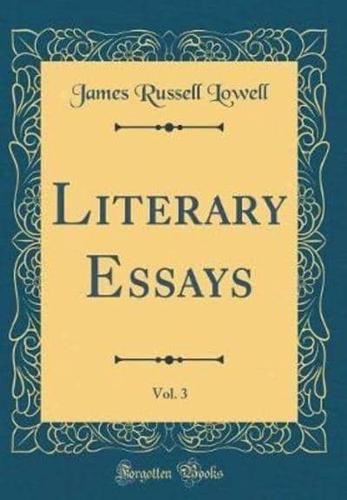Publisher's Synopsis
Excerpt from Literary Essays, Vol. 3
Occurred to him to question the right of that soci ety to exist than to criticise the divine ordination of the seasons. His business was with men as they were, not with man as he ought to be, - with the human soul as it is shaped or twisted into character by the complex experience of life, not in its abstract essence, as something to be saved or lost. During the first half of the seventeenth century, the centre of intellectual interest was rather in the other world than in this, rather in the region of thought and principle and conscience than in actual life. It was a generation in which the poet was, and felt himself, out of place. Sir Thomas Browne, our most imaginative mind since Shakespeare, found breathing-room, for a time, among the 0 alti tudines of religious speculation, but soon de scended to occupy himself with the exactitudes of science. Jeremy Taylor, who half a century ear lier would have been Fletcher's rival, compels his clipped fancy to the conventual discipline of prose, (maid Marian turned nun, ) and waters his poetic wine with doctrinal eloquence. Milton is saved from making total shipwreck of his large-utteranced genius on the desolate N oman's Land of a religious epic only by the lucky help of Satan and his col leagues, with whom, as foiled rebels and republicans, he cannot conceal his sympathy. As purely poet, Shakespeare would have come too late, had his lot fallen in that generation. In mind and tempera ment too exoteric for a mystic, his imagination could not have at once illustrated the influence of his epoch and escaped from it, like that of Browne; the. About the Publisher Forgotten Books publishes hundreds of thousands of rare and classic books. Find more at www.forgottenbooks.com This book is a reproduction of an important historical work. Forgotten Books uses state-of-the-art technology to digitally reconstruct the work, preserving the original format whilst repairing imperfections present in the aged copy. In rare cases, an imperfection in the original, such as a blemish or missing page, may be replicated in our edition. We do, however, repair the vast majority of imperfections successfully; any imperfections that remain are intentionally left to preserve the state of such historical works.























